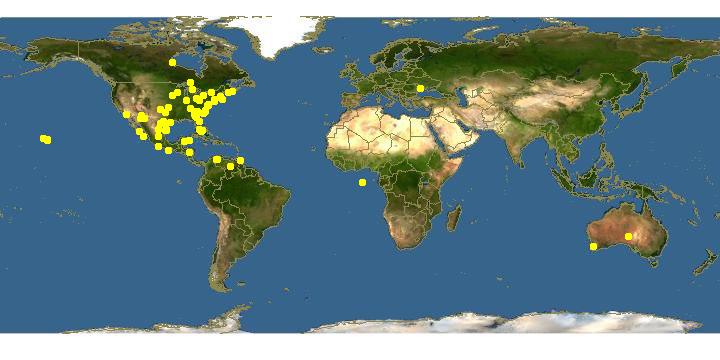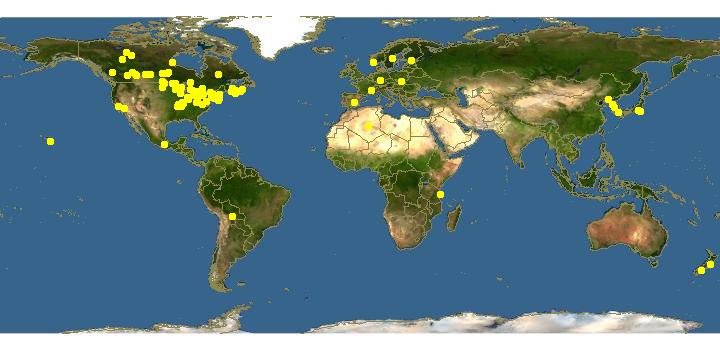Given that people learn historical and scientific facts from media (movies and books), we owe it to our audience to at least teach them something that's accurate.
Unless you're writing fantasy, chances are you want to lend a hint of realism through your setting. Something as simple as a cardinal singing in a jack pine can help bring a scene to life. But what if cardinals don't actually live in said location? Or jack pines for that matter? Well, now you can find out for sure, without booking a plane ticket, driving all day, or pestering your facebook friends who live kinda-sorta near there.
Discover Life is a fabulous site to use to research plants and animals of all kinds (something you may need to do whether you write fiction or non-fiction; I found the site while researching a non-fiction article). The site has a mapping feature that allows you to enter the type of organism and search for places where it has been recorded.
The easiest way to use Discover Life is to search for the plant or animal on their home page. (If you have trouble, google the species by common name, then copy and paste the genus species epithet—e.g. Cardinalis cardinalis for cardinal—into the search box.) Most of the species pages come up with a map of locations. Each point on the map is the location where a specimen was collected by a scientist; all are registered with various official museums and collections, so you know the information you're getting is accurate.
If you've got a cardinal singing in the jack pine, let's hope your story isn't set in Idaho. Neither cardinals nor jack pines can be found there. This resource can save you from an embarrassing email from an Idaho-based fan one day.
 |
| Northern Cardinal |
 |
| Jack Pine |

You are right on. Long ago I read the book The Eight, and so many people seem to love it. I couldn't stand it, because the chess details were all wrong. As a chess player, I noticed right away that the author had no idea what she was writing about.
ReplyDeleteThanks for the link! I hate it when details about something are wrong, showing that the author really hasn't done their homework.
ReplyDeleteWhat a cool site! I can see me spending time there.
ReplyDeleteIt's annoying when details are wrong, and SOMEONE will always notice! I see this a lot on forums for TV shows-- get one little fact wrong and the internet is buzzing with indignant viewers. I'd hate for that to happen with my book.
I love getting links like this - alas, I bookmarked this one and tweeted it. It can be daunting to make sure we're getting all of the little details correct (even in PBs!). Thanks for sharing.
ReplyDeleteTed: It's definitely the little details that can make or break the story.
ReplyDeleteAndrea: You're welcome!
Su: Good point. Little mistakes just can't remain hidden these days. (And this is kind of an addictive site; I found myself looking up all kinds of things that were completely irrelevant to what I was writing.)
Julie: Thanks for sharing it with others!